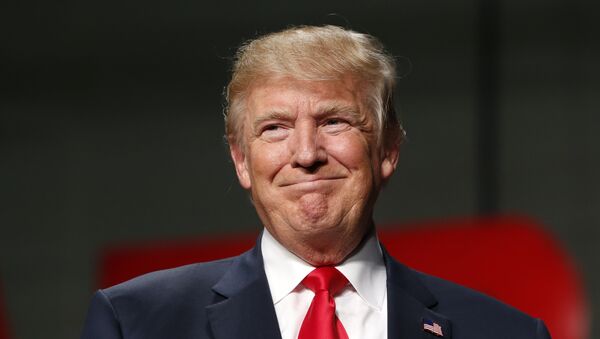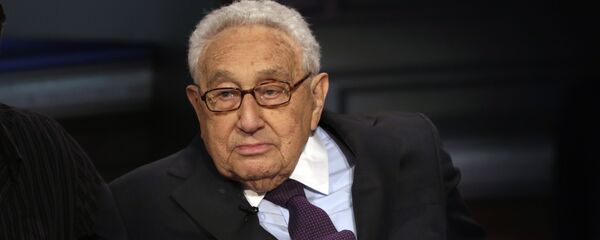Eland observed Trump’s advisers may see Russia as a valuable counterweight to a rising China in addition to being an ally against Islamic extremism.
This policy would be "the opposite of Kissinger's opening to a then weaker and more radical China to offset the more powerful Soviet Union. It is the reverse of what Kissinger did, but times are different; the spirit of the policy is the same," he explained.
Eland suggested the Trump team is probably using Kissinger to give establishment legitimacy to a policy it already wants to pursue,
"Much of the Democratic and even the Republican hierarchies are appalled by a US move to improve relations with Vladimir Putin. But Kissinger's name leads respectability to detente with Russia," Eland added.
University of Pittsburgh Professor of International Affairs Michael Brenner suggested that Trump chose Kissinger for advice because he shared the 93-year-old former secretary of state’s pragmatism toward Russia and China.
"Kissinger is the classic balance-of-power realist. That is manifest is the stress that he places on dealings with foreign powers even if they are not friends. Iran is the exception — hence, he agrees with Trump on that. On Russia, and China, he will urge pragmatism," he said.
Trump may also want Kissinger’s experience to make his policies toward Russia more coherent and detailed than the general principles he expounded on the campaign trail, Brenner added.
Kissinger, the architect with President Richard Nixon of the US detente policy with the Soviet Union in the 1970s, now has a plan on how to reconcile Moscow and Washington that is of interest to Trump, the German newspaper Bild reported on Monday.
Bild said European intelligence agencies had concluded Trump would seek constructive cooperation with Russia and that he had already consulted Kissinger as an informal adviser on the issue.


